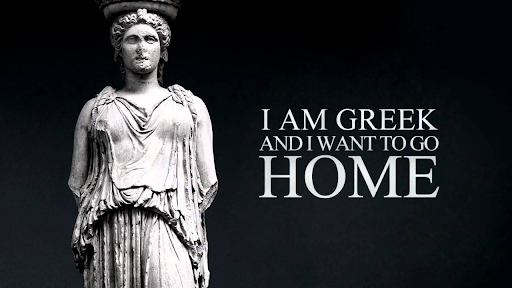The Parthenon Sculptures, which were previously known as the Elgin Marbles, are split between the Acropolis Museum in Athens and the British Museum in London. For many decades there has been a great debate about whether these items should be returned to Greece, as they are an important example of the golden age of Greece.
This month the issue came up again as the Greek Prime Minister, Kyriakos Mitsotakis was supposed to meet with the U.K. Prime Minister Rishi Sunak but he canceled the meeting because Mitsotakis brought up the subject of returning the sculptures on British television.
At the moment, the British Museum has 17 pedimental figures, 15 panels and 247 feet of the frieze. They were brought to London by Lord Elgin in the early 1800s and have been there ever since. The Greek government believes that they should be returned to fill in the missing parts of what they have displayed in the Acropolis Museum. In a recent interview, Prime Minister Mitsotakis said that this was the same as if Leonardo Da Vinci’s Mona Lisa was split up between two countries. In the U.K., more people are starting to support Greece’s wish to have the sculptures returned. The U.K. is considering loaning them to Greece but is unlikely to return them.
The musician and photographer, Ares Kalogeropoulos, used powerful words to showcase the Parthenon Sculptures by imagining that these historical works of art could speak for themselves on the topic:
“You can steal a statue, But you can NOT steal my origin.
I AM GREEK
Citizens of the World. I am being kept hostage.
I WANT TO RETURN HOME, to Greece
I was made to be ridden by Heroes. I was made to run on stone.
I AM GREEK And I WANT TO GO HOME.”
These ancient Greek sculptures have been admired for the millennials, serving as a key artistic point of reference. For many, this was what got them most excited to see in Greece. The British Museum says the sculptures were acquired legally and form an integral part of its display of the world’s cultural history. They’re open to a loan request, but must make sure that in such an event they would get them back. Athens should first acknowledge the institution’s legal ownership of the works- which Mitsotakis has ruled out. The U.K. governments have insisted that the sculptures must stay put where they belong.
The Parthenon marbles represented as a symbol of the modern Greeks’ cultural identity were most compelling: “You must understand what the Parthenon Marbles mean to us. They are our pride. They are our sacrifices. They are the supreme symbol of nobility. They are a tribute to democratic philosophy. They are our aspiration and our name. They are the essence of Greekness.” By taking these sculptures it almost lost their identity and feeling of Greekness because it represents who they are and where they came from.








